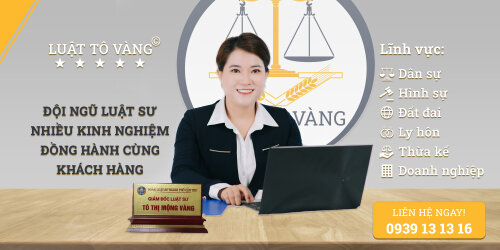Best Whistleblower & Qui Tam Lawyers in Can Tho
Share your needs with us, get contacted by law firms.
Free. Takes 2 min.
List of the best lawyers in Can Tho, Vietnam
About Whistleblower & Qui Tam Law in Can Tho, Vietnam
Whistleblower & Qui Tam laws in Can Tho, Vietnam are designed to protect individuals who report illegal or unethical activities within their organization. These laws allow whistleblowers to bring a lawsuit on behalf of the government (Qui Tam) in cases of fraud or misconduct. Whistleblowers are often granted immunity or financial rewards for their actions.
Why You May Need a Lawyer
You may need a lawyer in Whistleblower & Qui Tam cases if you have witnessed fraud, corruption, or misconduct in your workplace and wish to report it without risking your job or facing retaliation. A lawyer can help you navigate the legal process, protect your rights, and ensure that you receive any rewards you may be entitled to.
Local Laws Overview
In Can Tho, Vietnam, whistleblowers are protected under the Law on Complaints and Denunciations. This law prohibits retaliation against whistleblowers and allows them to report illegal activities anonymously. Qui Tam cases are governed by the Law on Prevention and Control of Corruption, which allows individuals to file lawsuits on behalf of the government in cases of fraud or corruption.
Frequently Asked Questions
1. What is the difference between Whistleblower & Qui Tam?
Whistleblowers report illegal or unethical activities, while Qui Tam whistleblowers file lawsuits on behalf of the government in cases of fraud or misconduct.
2. Can I report misconduct anonymously?
Yes, Can Tho law allows whistleblowers to report illegal activities anonymously to protect their identity.
3. Will I be protected from retaliation if I report misconduct?
Yes, Can Tho law prohibits employers from retaliating against whistleblowers for reporting illegal activities.
4. How can I file a Qui Tam lawsuit?
You will need to hire a lawyer to help you file a Qui Tam lawsuit on behalf of the government.
5. What rewards can I receive as a whistleblower?
Whistleblowers may be entitled to financial rewards or immunity for their actions, depending on the case.
6. How long do I have to file a whistleblower claim?
There are time limits for filing whistleblower claims, so it is important to act quickly if you have evidence of misconduct.
7. Can I be fired for whistleblowing?
No, Can Tho law protects whistleblowers from being fired or facing retaliation for reporting illegal activities.
8. Are there any limitations on who can be a whistleblower?
Anyone who has witnessed illegal activities within an organization can be a whistleblower, regardless of their position or role.
9. What evidence do I need to prove misconduct?
You will need documentation or other evidence to support your claims of misconduct when reporting illegal activities.
10. How can I protect myself when whistleblowing?
You can protect yourself by hiring a lawyer, reporting illegal activities anonymously, and knowing your rights as a whistleblower under Can Tho law.
Additional Resources
If you need legal advice or assistance in Whistleblower & Qui Tam cases in Can Tho, Vietnam, you can contact the Vietnam Bar Federation or the Ministry of Justice for more information and support.
Next Steps
If you believe you have witnessed fraud or misconduct in your workplace and are considering blowing the whistle, it is important to consult with a lawyer who specializes in Whistleblower & Qui Tam law in Can Tho, Vietnam. They can guide you through the process, protect your rights, and help you seek any rewards you may be entitled to.
Lawzana helps you find the best lawyers and law firms in Can Tho through a curated and pre-screened list of qualified legal professionals. Our platform offers rankings and detailed profiles of attorneys and law firms, allowing you to compare based on practice areas, including Whistleblower & Qui Tam, experience, and client feedback.
Each profile includes a description of the firm's areas of practice, client reviews, team members and partners, year of establishment, spoken languages, office locations, contact information, social media presence, and any published articles or resources. Most firms on our platform speak English and are experienced in both local and international legal matters.
Get a quote from top-rated law firms in Can Tho, Vietnam — quickly, securely, and without unnecessary hassle.
Disclaimer:
The information provided on this page is for general informational purposes only and does not constitute legal advice. While we strive to ensure the accuracy and relevance of the content, legal information may change over time, and interpretations of the law can vary. You should always consult with a qualified legal professional for advice specific to your situation.
We disclaim all liability for actions taken or not taken based on the content of this page. If you believe any information is incorrect or outdated, please contact us, and we will review and update it where appropriate.









